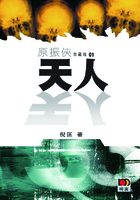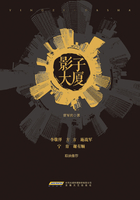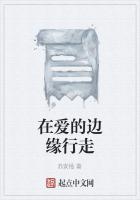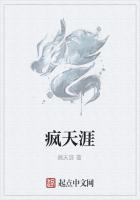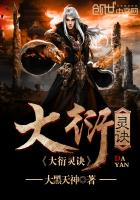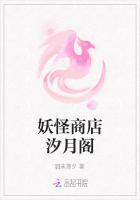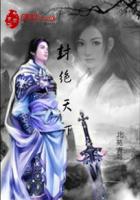Our examination of the little valley proved to be altogether most satisfactory. We found in it not only similar trees to those we had already seen in our own valley, but also one or two others of a different species. We had also the satisfaction of discovering a peculiar vegetable, which, Jack concluded, must certainly be that of which he had read as being very common among the South Sea Islanders, and which was named taro. Also we found a large supply of yams, and another root like a potato in appearance. As these were all quite new to us, we regarded our lot as a most fortunate one, in being thus cast on an island which was so prolific and so well stored with all the necessaries of life. Long afterwards we found out that this island of ours was no better in these respects than thousands of other islands in those seas. Indeed, many of them were much richer and more productive; but that did not render us the less grateful for our present good fortune. We each put one of these roots in our pocket, intending to use them for our supper--of which more hereafter. We also saw many beautiful birds here, and traces of some four-footed animal again. Meanwhile the sun began to descend; so we returned to the shore and pushed on, round the spouting rocks, into the next valley. This was that valley of which I have spoken as running across the entire island. It was by far the largest and most beautiful that we had yet looked upon. Here were trees of every shape and size and hue which it is possible to conceive of, many of which we had not seen in the other valleys; for, the stream in this valley being larger, and the mould much richer than in the Valley of the Wreck, it was clothed with a more luxuriant growth of trees and plants. Some trees were dark, glossy green; others of a rich and warm hue, contrasting well with those of a pale, light green, which were everywhere abundant. Among these we recognised the broad, dark heads of the bread-fruit, with its golden fruit; the pure, silvery foliage of the candle-nut, and several species which bore a strong resemblance to the pine; while here and there, in groups and in single trees, rose the tall forms of the cocoa-nut palms, spreading abroad, and waving their graceful plumes high above all the rest, as if they were a superior race of stately giants keeping guard over these luxuriant forests. Oh, it was a most enchanting scene! and I thanked God for having created such delightful spots for the use of man.
Now, while we were gazing around us in silent admiration, Jack uttered an exclamation of surprise, and pointing to an object a little to one side of us, said:
"That's a banyan tree."
"And what's a banyan tree?" inquired Peterkin as we walked towards it.
"A very curious one, as you shall see presently," replied Jack. "It is called the aoa here, if I recollect rightly, and has a wonderful peculiarity about it. What an enormous one it is, to be sure!"
"It!" repeated Peterkin. "Why, there are dozens of banyans here! What do you mean by talking bad grammar? Is your philosophy deserting you, Jack?"
"There is but one tree here of this kind," returned Jack, "as you will perceive if you will examine it." And, sure enough, we did find that what we had supposed was a forest of trees was in reality only one. Its bark was of a light colour, and had a shining appearance, the leaves being lance-shaped, small, and of a beautiful pea-green. But the wonderful thing about it was that the branches, which grew out from the stem horizontally, sent down long shoots or fibres to the ground, which, taking root, had themselves become trees, and were covered with bark like the tree itself. Many of these fibres had descended from the branches at various distances, and thus supported them on natural pillars, some of which were so large and strong that it was not easy at first to distinguish the offspring from the parent stem. The fibres were of all sizes and in all states of advancement, from the pillars we have just mentioned to small cords which hung down and were about to take root, and thin brown threads still far from the ground, which swayed about with every motion of wind. In short, it seemed to us that, if there were only space afforded to it, this single tree would at length cover the whole island.
Shortly after this we came upon another remarkable tree, which, as its peculiar formation afterwards proved extremely useful to us, merits description. It was a splendid chestnut, but its proper name Jack did not know. However, there were quantities of fine nuts upon it, some of which we put in our pockets. But its stem was the most wonderful part of it. It rose to about twelve feet without a branch, and was not of great thickness; on the contrary, it was remarkably slender for the size of the tree. But to make up for this, there were four or five wonderful projections in this stem, which I cannot better describe than by asking the reader to suppose that five planks of two inches thick and three feet broad had been placed round the trunk of the tree, with their edges closely fixed to it, from the ground up to the branches, and that these planks had been covered over with the bark of the tree and incorporated with it. In short, they were just natural buttresses, without which the stem could not have supported its heavy and umbrageous top. We found these chestnuts to be very numerous. They grew chiefly on the banks of the stream, and were of all sizes.
While we were examining a small tree of this kind Jack chipped a piece off a buttress with his axe, and found the wood to be firm and easily cut. He then struck the axe into it with all his force, and very soon split it off close to the tree--first, however, having cut it across transversely above and below. By this means he satisfied himself that we could now obtain short planks, as it were all ready sawn, of any size and thickness that we desired, which was a very great discovery indeed--perhaps the most important we had yet made.
We now wended our way back to the coast, intending to encamp near the beach, as we found that the mosquitoes were troublesome in the forest. On our way we could not help admiring the birds which flew and chirped around us. Among them we observed a pretty kind of paroquet, with a green body, a blue head, and a red breast; also a few beautiful turtle-doves, and several flocks of wood-pigeons. The hues of many of these birds were extremely vivid--bright green, blue, and scarlet being the prevailing tints. We made several attempts throughout the day to bring down one of these, both with the bow and the sling--not for mere sport, but to ascertain whether they were good for food. But we invariably missed, although once or twice we were very near hitting. As evening drew on however, a flock of pigeons flew past. I slung a stone into the midst of them at a venture, and had the good fortune to kill one. We were startled soon after by a loud whistling noise above our heads, and on looking up, saw a flock of wild ducks making for the coast. We watched these, and observing where they alighted, followed them up until we came upon a most lovely blue lake, not more than two hundred yards long, embosomed in verdant trees. Its placid surface, which reflected every leaf and stem as if in a mirror, was covered with various species of wild ducks, feeding among the sedges and broad-leaved water-plants which floated on it, while numerous birds like water-hens ran to and fro most busily on its margin. These all, with one accord, flew tumultuously away the instant we made our appearance. While walking along the margin we observed fish in the water, but of what sort we could not tell.
Now, as we neared the shore, Jack and I said we would go a little out of our way to see if we could procure one of those ducks; so, directing Peterkin to go straight to the shore and kindle a fire, we separated, promising to rejoin him speedily. But we did not find the ducks, although we made a diligent search for half-an-hour. We were about to retrace our steps when we were arrested by one of the strangest sights that we had yet beheld.
Just in front of us, at the distance of about ten yards, grew a superb tree, which certainly was the largest we had yet seen on the island. Its trunk was at least five feet in diameter, with a smooth, grey bark; above this the spreading branches were clothed with light-green leaves, amid which were clusters of bright-yellow fruit, so numerous as to weigh down the boughs with their great weight. This fruit seemed to be of the plum species, of an oblong form, and a good deal larger than the magnum bonum plum. The ground at the foot of this tree was thickly strewn with the fallen fruit, in the midst of which lay sleeping, in every possible attitude, at least twenty hogs of all ages and sizes, apparently quite surfeited with a recent banquet.
Jack and I could scarce restrain our laughter as we gazed at these coarse, fat, ill-looking animals while they lay groaning and snoring heavily amid the remains of their supper.
"Now, Ralph," said Jack in a low whisper, "put a stone in your sling--a good big one--and let fly at that fat fellow with his back toward you. I'll try to put an arrow into yon little pig."
"Don't you think we had better put them up first?" I whispered. "It seems cruel to kill them while asleep."
"If I wanted sport, Ralph, I would certainly set them up; but as we only want pork, we'll let them lie. Besides, we're not sure of killing them; so, fire away."
Thus admonished, I slung my stone with so good aim that it went bang against the hog's flank as if against the head of a drum; but it had no other effect than that of causing the animal to start to its feet, with a frightful yell of surprise, and scamper away. At the same instant Jack's bow twanged, and the arrow pinned the little pig to the ground by the ear.
"I've missed, after all!" cried Jack, darting forward with uplifted axe; while the little pig uttered a loud squeal, tore the arrow from the ground, and ran away with it, along with the whole drove, into the bushes and disappeared, though we heard them screaming long afterwards in the distance.
"That's very provoking, now," said Jack, rubbing the point of his nose.
"Very," I replied, stroking my chin.
"Well, we must make haste and rejoin Peterkin," said Jack; "it's getting late." And without further remark, we threaded our way quickly through the woods towards the shore.
When we reached it we found wood laid out, the fire lighted and beginning to kindle up, with other signs of preparation for our encampment; but Peterkin was nowhere to be found. We wondered very much at this; but Jack suggested that he might have gone to fetch water, so he gave a shout to let him know that we had arrived, and sat down upon a rock, while I threw off my jacket and seized the axe, intending to split up one or two billets of wood. But I had scarce moved from the spot when, in the distance, we heard a most appalling shriek, which was followed up by a chorus of yells from the hogs, and a loud hurrah.
"I do believe," said I, "that Peterkin has met with the hogs."
"When Greek meets Greek," said Jack, soliloquising, "then comes the tug of--"
"Hurrah!" shouted Peterkin in the distance.
We turned hastily towards the direction whence the sound came, and soon descried Peterkin walking along the beach towards us with a little pig transfixed on the end of his long spear!
"Well done, my boy!" exclaimed Jack, slapping him on the shoulder when he came up. "You're the best shot amongst us."
"Look here, Jack!" cried Peterkin as he disengaged the animal from his spear. "Do you recognise that hole?" said he, pointing to the pig's ear; "and are you familiar with this arrow, eh?"
"Well, I declare!" said Jack.
"Of course you do," interrupted Peterkin; "but, pray, restrain your declarations at this time, and let's have supper--for I'm uncommonly hungry, I can tell you. And it's no joke to charge a whole herd of swine with their great-grandmother bristling like a giant porcupine, at the head of them!"
We now set about preparing supper; and, truly, a good display of viands we made when all was laid out on a flat rock in the light of the blazing fire. There was, first of all, the little pig; then there were the taro-root, and the yam, and the potato, and six plums; and lastly, the wood-pigeon. To these Peterkin added a bit of sugar-cane, which he had cut from a little patch of that plant which he had found not long after separating from us; "and," said he, "the patch was somewhat in a square form, which convinces me it must have been planted by man."
"Very likely," replied Jack. "From all we have seen, I'm inclined to think that some of the savages must have dwelt here long ago."
We found no small difficulty in making up our minds how we were to cook the pig. None of us had ever cut up one before, and we did not know exactly how to begin; besides, we had nothing but the axe to do it with, our knife having been forgotten. At last Jack started up and said:
"Don't let us waste more time talking about it, boys.--Hold it up, Peterkin. There, lay the hind leg on this block of wood--so;" and he cut it off; with a large portion of the haunch, at a single blow of the axe. "Now the other--that's it." And having thus cut off the two hind legs, he made several deep gashes in them, thrust a sharp-pointed stick through each, and stuck them up before the blaze to roast. The wood-pigeon was then split open, quite flat, washed clean in salt water, and treated in a similar manner. While these were cooking we scraped a hole in the sand and ashes under the fire, into which we put our vegetables and covered them up.
The taro-root was of an oval shape, about ten inches long and four or five thick. It was of a mottled-grey colour, and had a thick rind. We found it somewhat like an Irish potato, and exceedingly good. The yam was roundish, and had a rough brown skin. It was very sweet and well flavoured. The potato, we were surprised to find, was quite sweet and exceedingly palatable, as also were the plums--and, indeed, the pork and pigeon too--when we came to taste them. Altogether, this was decidedly the most luxurious supper we had enjoyed for many a day. Jack said it was out-of-sight better than we ever got on board ship; and Peterkin said he feared that if we should remain long on the island he would infallibly become a glutton or an epicure, whereat Jack remarked that he need not fear that, for he was both already! And so, having eaten our fill, not forgetting to finish off with a plum, we laid ourselves comfortably down to sleep, upon a couch of branches, under the overhanging ledge of a coral rock.

